Obtaining and Proper Storing of Legal Documents
Obtaining and Proper Storing of Legal Documents
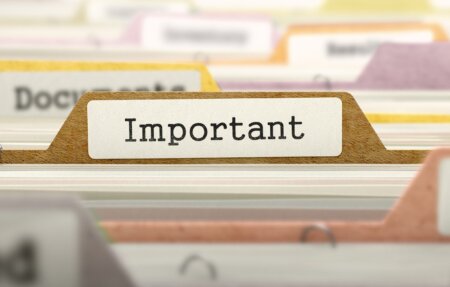
As a citizen, it is important that you have legal documents with you. This is to help you settle and organize your finances and affairs in the future with ease. To help you with the vital information you should know about different legal documents, here’s a list of why you need them, how you can get them, and how to properly store them.
1. Birth Certificate
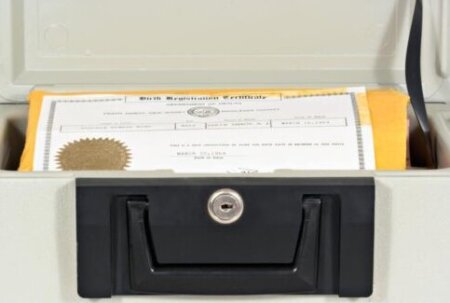
Why you need it:
The birth certificate is one of the most helpful legal documents in proving your legal identity. So, this is used for a wide range of reasons. You’ll need it for enrolling in a school, getting a passport, applying for retirement and insurance benefits, and more.
Where you can get it:
You might be thinking that hospitals keep those records, but no. According to Sandra Smith of the National Center for Health Statistics (NCHS), check this document first at the statistics office in the birth state. To help you get the number and address of the state’s office, check out the website run by NCHS which is cdc.gov. Or you can also check for such details in the phone book.
What you need to get it:
Like the usual statistics, it needs your important information such as name, gender, parents’ name, birthdate, place of birth, and such. Also, don’t forget that there will be fees ranging from $5 to $30.
How long it takes:
If it is urgent, it’s best to request one in person because mailing can reach about four weeks. Well, this is unless you pay an additional fee which can get your request done in two weeks. Take note also of what season it is because most in the late summer, people will flock to get birth certificates to use in enrolling for school.
2. Social Security Card
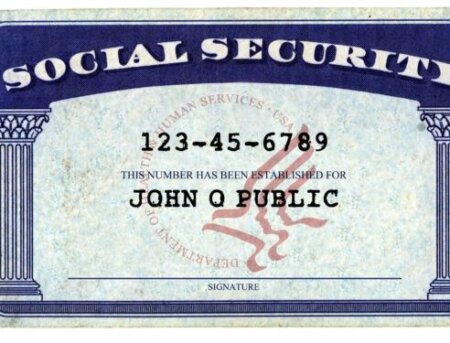
Why you need it:
This card holds a strong purpose; it can be utilized in applying for a job or getting that driver’s license, you can also use it for applying to college, and most importantly, it can be used to ask for insurance or Medicaid when needed. Although Jane Zanca, a senior public affairs specialist at the Social Security Administration has said that commonly, your Social Security number is enough, always make sure you have your card with you as it might be needed to check if your number is legitimate.
Where you can get it:
First, check out the website socialsecurity.gov to find locations of Social Security offices near you. From there, you can download the application directly so that you can prepare it before going to the office. And you might want to send your request through email together with the supporting documents, but Zanca does not highly encourage this. Doing so will put you at risk for stolen mail and identity theft.
What you need to get it:
Make sure you have filled in the one-page application form from the site and bring your legal documents to prove your identity, it could be a passport or marriage or divorce record. Now, if you weren’t born in the United States, do not forget to show proof of citizenship or lawful alien status. Moreover, bring original copies and not photocopies. For the fee, there’s nothing to worry about since it costs nothing for replacement cards.
How long it takes:
Requests will be processed in about five minutes if you personally go to your local Social Security office. After this, your card will arrive at you within two weeks. And if you can’t wait for your replacement card, you may request a printout from the administration verifying your Social Security number.
3. Passport
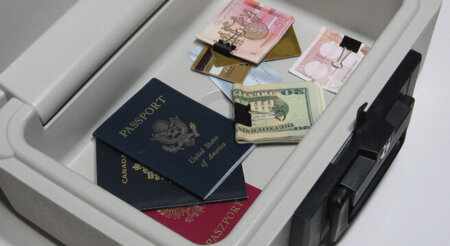
Why you need it:
It is commonly used for flying internationally but it can also be used for identification purposes in case you don’t have a driver’s license.
Where you can get it:
Check out the U.S Department of State’s website, travel.state.gov to find the nearest location of the facility to get a passport – you can also find necessary forms and instructions there. If your passport has been unfortunately lost or stolen, it’s important that you go to the passport-processing facility personally and make your request for a replacement. And if you only need your passport to be renewed, it can be as easy as doing the request via mail.
What you need to get it:
The first document you should have is your proof of citizenship (it can be a birth certificate), then prepare your proof of identity, two passport photos, and the completed application forms. If you have any questions regarding other requirements, you may check out the website especially if you’re requesting a passport for children under 14 and other urgent requests. For the charge, in-person renewals cost about $95 for a new book and $70 for children under 16. As for the renewals by mail, they cost much less. For adults, it’s $55 and another $25 for the execution fee.
How long it takes:
Passports do take quite a while if you’re applying for the regular service – it can be done in about four to six weeks. But if you’re paying for the urgent service, it’ll be lessened to up to two weeks. There are various non-government expediting services out there if you really need your passport in about one to three days. You can check out Passport Express at passportexpress.com and Passports and Visas at passportsandvisas.com. However, they charge more than $199 for every replacement.
4. College Diploma
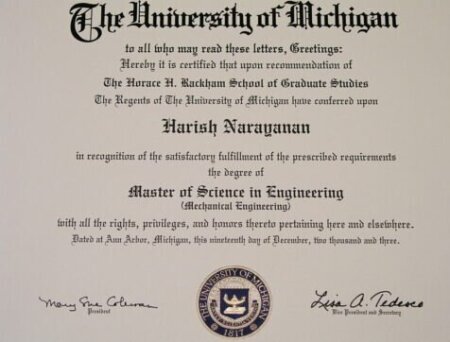
Why you need it:
Mostly, it’s for the psychological validation you need that what you have gone through in college was worth it. It’s also one way to remind yourself that you have something to be proud of.
Where to get it:
For replacements, you can get your diplomas from your school’s student-services department. And remember that only your school can give you a legitimate copy of your diploma. Do not be scammed by a website offering that they get one for you.
What you need to get it:
Formally write a signed request and state why you need a copy. Also include important details such as your signature, Social Security number, address, year of graduation, and degree. For the payment, you can provide a check and know beforehand how much it costs from your school since it varies by school.
How long it takes:
This aspect largely depends on the school. There are some universities that only accept requests at certain times of the year. We suggest you call your school first to know their time frame for releasing replacements of diplomas. In addition, just avoid getting one during peak times so that your diploma can be processed quickly.
5. School Transcripts
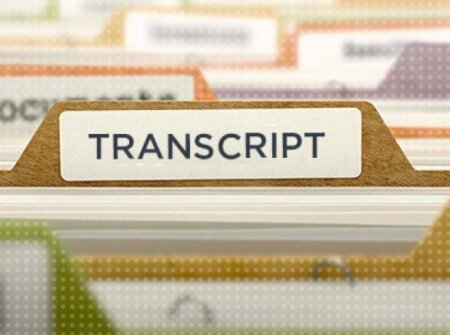
Why you need it:
If you’re applying for graduate school or taking professional regulatory boards and certain graduate-school admissions tests like the LSAT, copies of school transcripts will be needed. Moreover, other companies or employers will likely ask for your academic transcript if you apply for a job.
Where to get it:
Just like the diplomas, only ask for copies from your college or university’s student-services department. Again, do not be convinced of websites that are not from your school to avoid being scammed and fraud.
What you need to get it:
Schools provide forms if you want to request transcripts, so make sure to check the school’s website or you may do it personally and ask one from the student-services office. If there’s no form available, you may write a formal request including your Social Security number, year of graduation, degree, and address, plus don’t forget to provide a check if there are any fees you need to cover.
How long it takes:
Avoid getting replacements at a busy time such as January or May since Veronica Primrose, a student-services specialist at the University of Notre Dame has stated that if you place a request during these times, you may have to wait longer than usual. If you follow her advice, you can have your school transcripts in about three to five business days (if your account is not on hold). And if you need it in less than 3 days, you can request a FedEx service.
6. Tax Returns

Why you need it:
Tax returns will be helpful if you want to secure a competitive rate on a loan or for any real estate transactions according to a broker at the Barron Mortgage Group, Zenna Lim. This is also to help you know about your taxes which will be prepared by your accountant.
Where to get it:
Before getting copies from other sources, make sure you start with your accountant or tax preparer because they usually are the ones who keep copies of your tax returns on file. But, you may also obtain copies of federal returns from the Internal Revenue Service. Check out irs.gov to download and fill out the required forms or you can directly call 800-829-1040 to place your request.
What you need to get it:
You simply need two things. Make sure you’ve filled out the IRS form 4506 and provide a check of payment which costs $39 for each return requested. After, you can mail it to them and wait for their response.
How long it takes:
This usually takes long so if you need it in the future, make sure you have planned ahead. You can have your IRS in about 60 days.
7. Car Title

Why you need it:
It simply helps you sell your car with ease since it’s proven that you own the vehicle.
Where to get it:
Go and check the website dmv.org to find your state’s Department of Motor Vehicles office and download the form. Also, take note of the bureau’s locations and open hours.
What you need to get it:
Complete the DMV Application form and cover the application fee (ask them first about this since it varies by state). It’s also important that you bring with you an ID and proof that you own the car (could be a vehicle registration or license plate number and vehicle identification number).
How long it takes:
This differs as well depending on which state you’re from but it could usually be done in as little as four days.
8. Property Deed

Why you need it:
If you’re planning to sell or refinance your property, a copy of your property deed will be required. Michael Landsman, a real estate attorney at the New York City law firm of Holm & O’Hara said that this document provides evidence of ownership of a certain property. In addition, it can also be used whenever you transfer the title for estate-planning purposes.
Where to get it:
First, ask your lawyer who handled your closing about this. But if your attorney doesn’t have your copy, you can call the county clerk’s office directly. They usually keep the records of deeds before it goes to you or your attorney. If you don’t have much time to take care of this matter, you can hire a title company to do the work for you. Look for them in the Yellow Pages under “Title Search.”
What you need to get it:
You’ll mainly be needing to provide the street address of the property. However, Jim McEvoy of the LandAmerica Financial Group suggested that if you want better service, it’s best that you also give out the tax map ID number. For the charge, there is actually no fee if you request the title yourself while title companies can cost about $100 for every search.
How long it takes:
McEvoy stated that this process usually takes about 10 business days in most cases.
Now that you have an idea of all the important documents and how to obtain them, it’s time to talk about how to protect and where to keep these documents. This is to make sure you don’t lose or damage them. Also, to make you locate them quickly.
How to Protect Important Documents
Laminating is one of the best ways to provide a protective coating to your important papers. This avoids the papers from aging and damaging. Lamination is recommended and best for papers that you regularly hold or anything that you want to preserve, which could be your kids’ artworks, or newspaper clippings. It is suggested that you laminate your frequently used work documents, auto insurance cards, prescription cards, emergency phone lists, and wallet-size photos.
However, not all vital documents should be laminated because there are papers that lose their value once altered. This includes baseball cards, birth certificates, and most importantly, Social Security cards. Just store them properly to not damage them. You can laminate your documents on your own if you have a laminating machine but if you don’t have one, you can have them laminated in an office store. They don’t usually cost much.
Where to Store Important Documents
Once you have all of your vital documents, you need to properly store them but you may be wondering where you should put them. Here are five areas or things where you can keep them.
1. Safe-deposit box
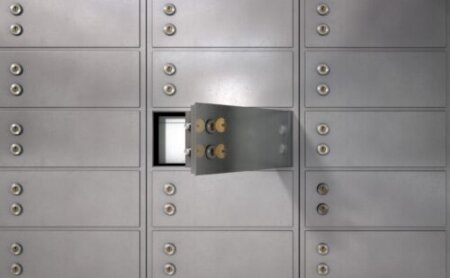
Bank safe deposit boxes provide the highest form of protection for your documents. If you’re planning to get one, you should know that it starts at about $45 an annual fee for a small box. And to make the most out of your safe-deposit box put only original documents in there that are irreplaceable or hard to replace. You can just have copies in your house in case you need them. Now, if you have a safe-deposit box, be responsible and keep one key to a hidden box in your house and you can also give one to a trusted friend or relative in case anything unpredictable will happen.
2. Fireproof safe
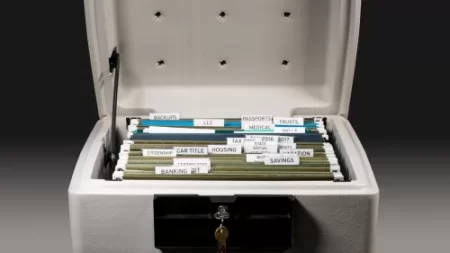
If running from and to the bank to have your documents is not convenient for you, we suggest that you keep them in a fireproof safe kept in your own home. The president of the National Association of Professional Organizers also added that having a fireproof safe is easier than going to the bank. He added, “Look for a safe that can be bolted to the floor and has at least a one-hour fire rating. And if you live on a high floor, opt for one with impact protection as well.”
3. Accordion file

If the first two options are too much of an investment for you, don’t worry. There are still other options and Lisa Zaslow, founder of Gotham Organizers, in New York City, suggested that you can keep all of your important papers in one single accordion file placed in a file cabinet. Not only does this cost less, but you can easily and quickly grab everything in case of an emergency.
4. Dry spaces

There are several known disasters and they are unpredictable so when storing your important papers, pick out the right location in your house. Consider also where you live. Zaslow added that if the area you live in is a flood-prone location, make sure you don’t put your documents in the basement or any areas that can be easily reached by the flood, you can try putting them in the attic. Or any area that is high enough.
5. A known location

There will be times when you forget where you put all your documents so make sure to put them in a location that you can easily think of. Also, you can let others such as family or relatives know where you’ve put them so that you don’t find it hard whenever you’re unable to access them when needed.
